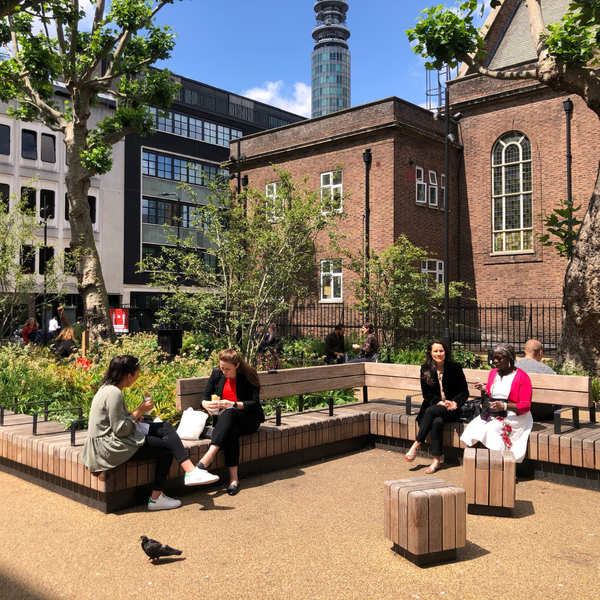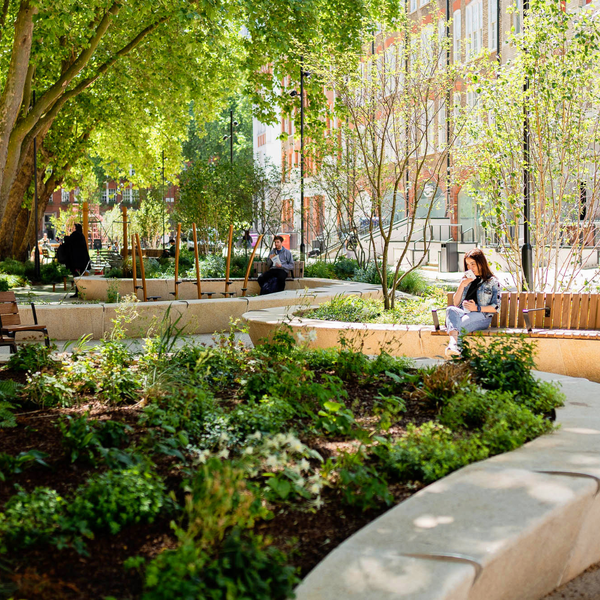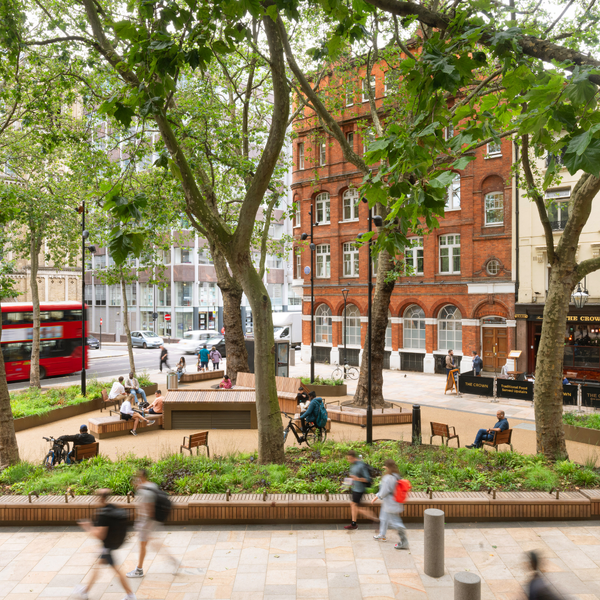Project showcase
West End Project, London Borough of Camden, for Camden Council, with Central District Alliance, LDA Design, Norman Rourke Pryme, Arcadis and Michael Grubb Studio
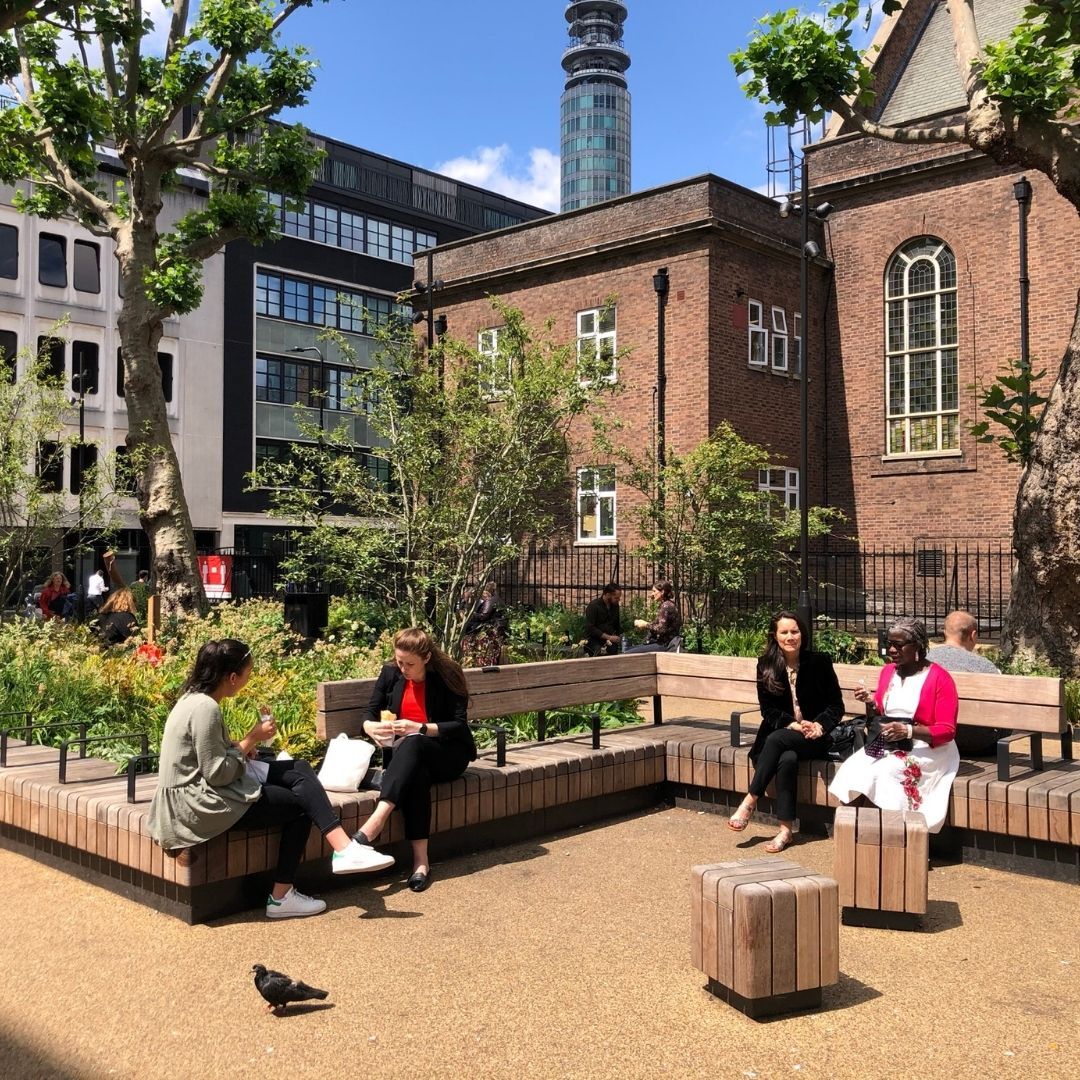
The West End Project includes multiple projects across the Tottenham Court Road area created with Camden Council’s £35m investment. Camden’s Biodiversity Action Plan guided planting proposals, with over 8,000 herbaceous and structural new plants and over 13,000 bulb plants. Climate resilience initiatives include 1,000sqm of new planting area and almost 2,400sqm of new permeable paving, alongside general traffic reduction and the addition of 2.6km of cycle lanes.
Who is on the project team? (designer, consultants, etc)
Landscape Architects: LDA Design Civil
Structural Engineers: Arcadis
Construction Project Management and Cost Consultancy: Norman Rourke Pryme
Lighting Design: Michael Grubb Studio
Contractor: ID Verde
Overarching West End Project Strategy: DSDHA
Describe the context of this initiative or project, its neighbourhood and the community it serves?
London is getting hotter and needs radical urban redesign to unpick decades of vehicular dominance, with widespread introduction of car-free places and more planting. A landmark report produced by Arup in January 2024 maps London neighbourhoods with heat risk to residential property and Camden is at one of the highest risks. The borough is one of the most unequal places in London with a health gap that continues to widen. A large proportion of homes are flats, which are vulnerable to overheating, and 39 percent of Camden residents have no direct access to private or communal green space where they live. West End Project is Camden Council’s £35m investment into the area around London’s Tottenham Court Road. It is a pioneering healthy streets and spaces initiative and the borough’s largest transport and public realm scheme, designed to strengthen climate resilience and improve air quality. It also supports health and wellbeing. Just two hours of contact with nature per week almost halves the risk of poor mental health, which is experienced by a high proportion of young people in the borough. This complex renewal programme is significant not least because it demonstrates the benefits of a softer, greener, more social approach to urban design in a highly visible and heavily populated location. By creating green space and habitat networks in the heart of the city it also supports the health of the wider ecosystem and the development of London as a National Park City.
Describe the intervention you’ve made, including its purpose and motivation? How it will contribute to climate resilience.
West End Project takes historic London streets and spaces in contested and heavily trafficked parts of the city and reimagines them as places fit for a very different future, with climate, people and nature inspiring the new designs. Road space has been reclaimed for pedestrians, pavements widened and decluttered and 2.6km of cycle lanes added. One-way systems have been removed and traffic volume reduced on Tottenham Court Road and Gower Street. It has transformed Whitfield Gardens and created seven pocket parks. Alfred Place Gardens is a linear park created from a former rat run. Princes Circus reclaims part of Shaftesbury Avenue and Bloomsbury Street to create a lively new public square with a mature canopy. Studies into microclimate, the pressures of climate change and Camden’s Biodiversity Action Plan guided the beautiful and practical planting proposals, with over 8,000 herbaceous and structural new plants and over 13,000 bulb plants. There is more than 1,000m2 of new planting area and almost 2,400m2 of new permeable paving. The area is now much greener, with 59 new trees added to the 77 retained and protected throughout the project. With people being prioritised over cars, walking and cycling have both increased, reducing use of fossil fuels. Families play on stepping stones where they once dodged traffic. West End Project is creating a benchmark at different scales for how vehicle-dominated cities can function differently, as calmer and more resilient places.
Explain the environmental and social impact of the project?
Starting in 2014, WEP completed in 2023. Working with the community was a priority from the outset and initial engagement reached over 1,300 responses from residents, businesses and local interest groups which shaped the project. A series of well-publicised workshops and pop-ups in the spaces, backed up by online activity, captured hundreds of meaningful conversations. Greening and nature came up in nearly all conversations, as did the need for generous seating in an area desperately short of quality public spaces. The retention of mature tree canopies was consistently integral to all designs, for beauty and cooling. All the spaces that make up WEP bring people together and strengthen wider connections, with each providing a sociable setting for life to play out. Whitfield Gardens features communal dining and movable seating; Alfred Place Gardens feature long, sculptural seating ideal for chatting. Spaces have been designed to be flexible to support community events. Generous play has been incorporated to cater for families. By creating green spaces people want to spend time, and equitable spaces for lots of different people, dwell time has increased. On Tottenham Court Road, cycling is up both in the week and on the weekend and congestion has been reduced by up to 70% during restricted hours. Traffic on Gower Street has also been reduced by up to 45%.
Gallery
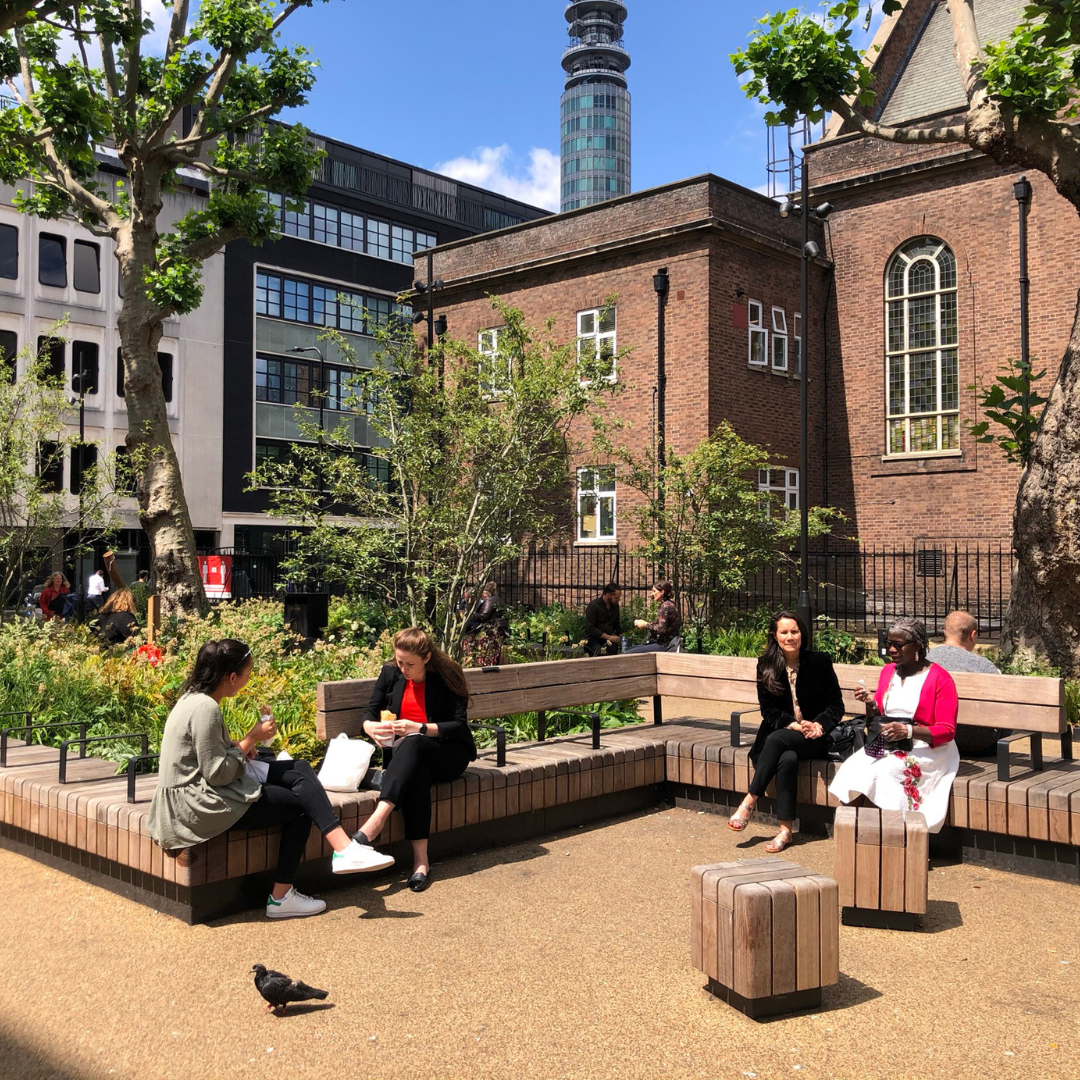
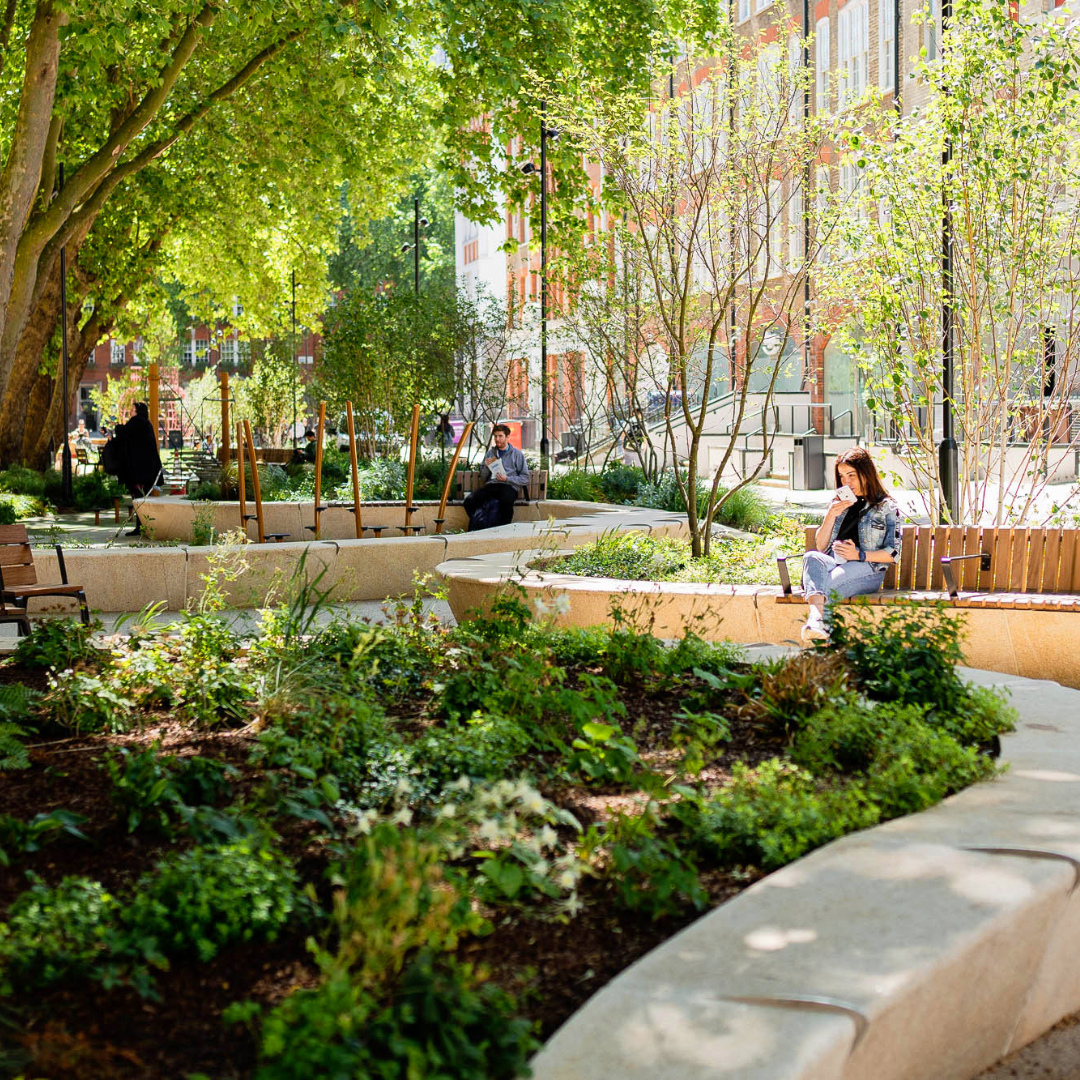
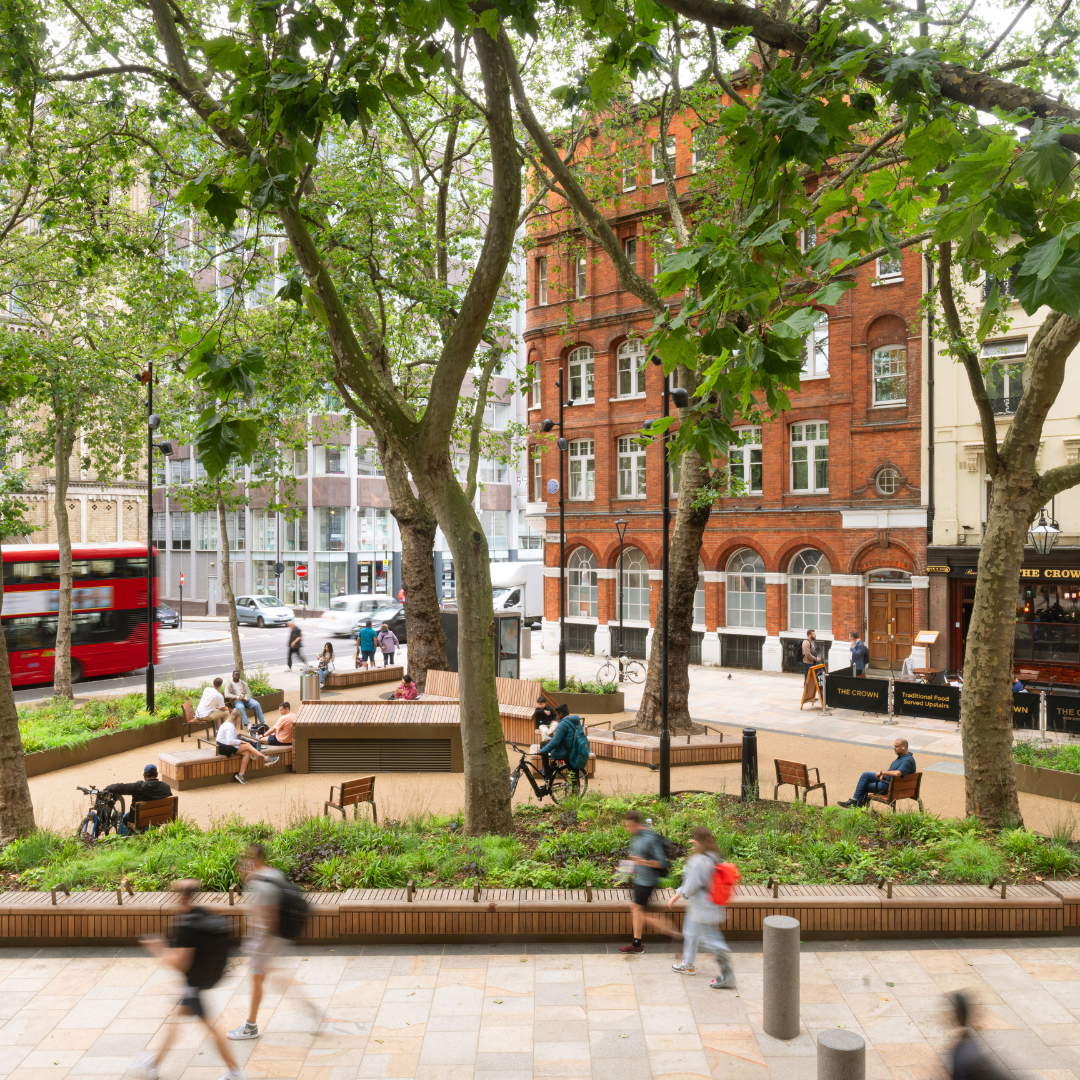
Festival of Pineapples
24-26 February 2026
Pineapples prize giving night
April
Pineapples at Festival of Place
10 June 2026
© The Pineapples - Tweak Ltd. 124 City Road, London, EC1V 2NX. Tel: 020 3326 7238
